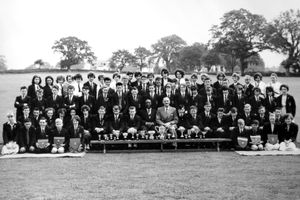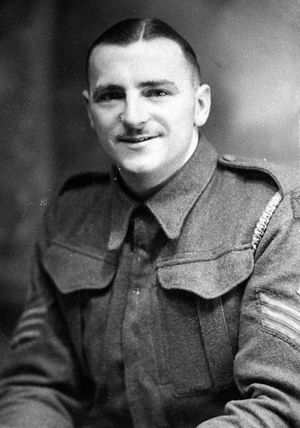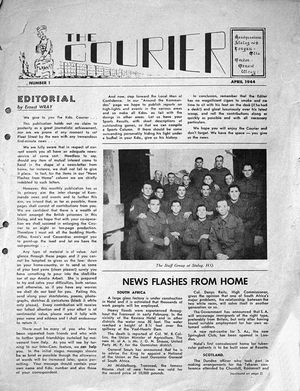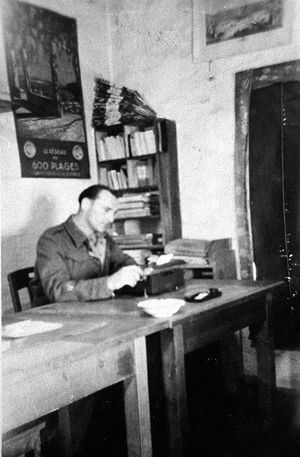The wartime magazine with a captive Shropshire audience
Ernest Wray – one of a generation of Shropshire headteachers whose lives were forged by war – sits with his pupils at Pontesbury Secondary Modern School at its sixth annual speech day and prizegiving on July 18, 1963.

Ernie Wray was the first head of the school when it opened in 1957, and was there all the way to his retirement in 1975. On his death in 2004 at the age of 89 he was described as an inspiration to pupils of what became the Mary Webb School.
He had found a way to be an inspiration during the war too, producing a morale-boosting magazine in the most unusual circumstances.
The Courier was a magazine for prisoners of war. Mr Wray, its editor and founder, was himself a POW.
A Regimental Quarter Master Sergeant serving in the 5th Battalion, the East Yorkshire Regiment, he had been captured in Libya in June 1942.

“We were completely surrounded and cut off by the German pincer movement, and that was it. I finished up in this Stalag 4D at the end of 1943,” he was to recall.
This was a working Stalag comprising a number of working camps, or Kommandos. With much of the German male population in uniform, prisoners were put to work, for which they received a small sum, although Mr Wray could not himself be forced to work because of his rank.
The Stalag’s headquarters was in Torgau, on the Elbe.
Mr Wray, who hailed from Yorkshire, struck on the idea of launching a magazine to keep prisoners in touch with friends and colleagues from whom they had been separated.
The Germans gave him permission, he chose the name The Courier, and the first issue came out in April 1944.

“The first one or two I more or less wrote myself. It took off and people were writing all sorts of short stories and goodness knows what else in it."
Through his paper, Mr Wray ran an immensely successful fundraising campaign for the Red Cross, whose parcels were a saviour for many a POW.
“As a gesture, through this paper I asked the readers to contribute to a fund to help the Red Cross in return. Before the end of the appeal we had raised £12,000, which was a lot of money in those days. This money was given by the prisoners in the working camps.”

Somehow, in the chaos of the last days of the war, he managed to hang on to his precious copies of The Courier and late in life – he lived in Minsterley – gave a complete set of originals to his regimental museum in York.
At the time of that 1963 school photo pupils had collected 500 books to be sent to Fyzabad Presbyterian School in Trinidad, the head of which had visited them in 1959, forging a link which was maintained.
Guest speaker at the speech day and sitting next to Mr Wray was Mr J V Bastein, divisional inspector of schools for Trinidad and Tobago, who thanked the Shropshire school for its gift.





